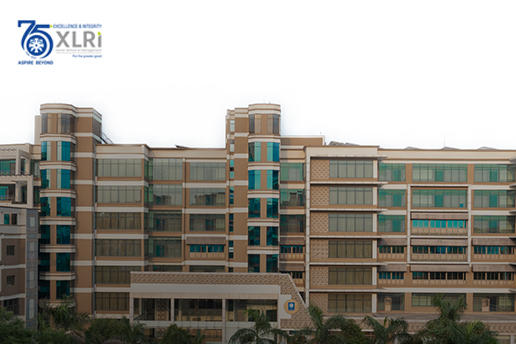
Healthcare innovation is critical for improving patient outcomes,and reducing costs in the healthcare industry, etc. Innovation in healthcare involves the development and adoption of new technologies, processes, and care models that improve the delivery of healthcare services.
The current state of healthcare innovation is rapidly evolving, with advancements in technology, the growth of personalized medicine, and a focus on patient-centred care. In India, institutions such as the Indian Institute of Technology (IIT Delhi) are at the forefront of healthcare innovation, developing new technologies and collaborating with industry partners to identify new opportunities for innovation.
As the healthcare industry continues to face challenges such as rising costs and growing demand for care, the need for innovation is more crucial than ever. This blog will explore some of the new opportunities for healthcare innovation, including technology-enabled healthcare, personalized medicine, patient-centred care, and addressing social determinants of health.
Technology-Enabled Healthcare Innovation
Technology is playing a crucial role in transforming the healthcare industry. Some examples of technology-enabled healthcare innovations include:
Table of Contents
Telemedicine
It refers to the use of technology to provide remote clinical services and consultations.
Wearable devices
It includes things like fitness trackers, smartwatches, and health monitors that collect and transmit data about an individual’s health status.
Artificial intelligence
It refers to the use of advanced algorithms and machine learning to analyze large datasets and identify patterns that can help diagnose and treat diseases.
The benefits of technology-enabled healthcare innovation include improved patient access to care, reduced costs, and better health outcomes. Telemedicine, for example, can provide access to healthcare services for patients in remote or underserved areas. Wearable devices can help patients monitor their health status and alert healthcare providers about
potential health issues before they become serious. Artificial intelligence can help identify patterns in patient data that may be missed by doctors, leading to more accurate diagnoses and treatment plans.
However, there are also challenges associated with technology-enabled healthcare innovation. These include concerns around data privacy and security, the potential for technology to exacerbate existing healthcare disparities, and the need to train healthcare providers in using new technologies.
Personalized Medicine
Personalized medicine is an approach to healthcare that takes into account a patient’s unique genetic, environmental, and lifestyle factors when diagnosing and treating disease. This differs from traditional medicine, which often uses a one-size-fits-all approach to diagnosis and treatment.
Examples of personalized medicine include precision oncology, which uses genetic testing to identify targeted therapies for cancer patients, and pharmacogenomics and determine the most effective medication and dosage for a particular patient.
The benefits of personalized medicine include improved treatment outcomes, reduced side effects, and more efficient use of healthcare resources. By tailoring treatment plans to the individual patient, healthcare providers can improve the effectiveness of treatments and reduce the risk of adverse events.
However, there are also challenges associated with personalized medicine. These include the high cost of genetic testing and the need to integrate genetic data into clinical decision-making processes. Additionally, there are concerns about data privacy and the potential for genetic information to be used for discriminatory purposes.
Overall, personalised medicine has the potential to revolutionize the healthcare industry, but it will require careful consideration of the ethical, legal, and social implications of using genetic data in healthcare.
Patient-Centred Care
Patient-centred care is an approach to healthcare that places the patient at the centre of the care delivery process. This differs from traditional care models, which may focus more on the disease or condition being treated rather than the patient’s individual needs and preferences.
Examples of patient-centred care include shared decision-making, where healthcare providers and patients work together to make decisions about the patient’s care, and care coordination, where healthcare providers work together to ensure that the patient receives the best possible care.
The benefits of patient-centred care include improved patient satisfaction, better health outcomes, and reduced healthcare costs. By focusing on the patient’s individual needs and preferences, healthcare providers can improve the effectiveness of treatments and reduce the risk of adverse events.
However, there are also challenges associated with patient-centred care. These include the need for healthcare providers to have the necessary skills and training to engage in shared decision-making and provide advance treatment to the patients.
Social Determinants of Health
Social determinants of health are the conditions in which people are born, grow, live, work, and age that can impact their health in long-term. These factors include socioeconomic status, education level, access to healthcare, and environmental factors such as housing and transportation.
Examples of healthcare innovations that address social determinants of health include community health workers, who provide healthcare services and support to underserved population and transportation assistance programs, which help patients access healthcare services easily.
The benefits of addressing social determinants of health include improved health outcomes, reduced healthcare costs, and increased equity in healthcare. By addressing the underlying social and environmental factors that contribute to poor health outcomes, healthcare providers can improve the overall health of the population and reduce the burden of chronic diseases.
However, there are also challenges associated with addressing social determinants of health. These include the need for healthcare providers to have a comprehensive understanding of the social and environmental factors that impact their patient’s health, and the need for collaboration across different sectors and organizations to address these factors effectively.
Overall, healthcare innovation has the potential to improve patient outcomes, increase access to care, and reduce costs in the healthcare industry. By focusing on technology-enabled healthcare, personalized medicine, patient-centred care, and addressing social determinants of health, healthcare providers can work towards a more effective, equitable, and sustainable healthcare system.
Thus,, healthcare opportunities in India and healthcare innovation has the potential to improve patient outcomes, reduce healthcare costs, and increase access to healthcare. IIT Delhi‘s Executive Programme in Healthcare Entrepreneurship and Management is an example of its commitment to driving innovation and research in the healthcare industry. If you wish to drive innovation and unlock new paradigm of growth in healthcare industry, you must enroll yourself in this highly credible and valuable programme which you help you prepare for various transitional entrepreneurship roles in the healthcare sector.
When talking about the future, we can say that Healthcare innovation is expected to continue to transform the industry, particularly in technology-enabled healthcare and personalized medicine. Artificial intelligence and advanced technologies will play an increasingly important role in enabling accurate diagnoses, effective treatments, and better patient outcomes. India offer many opportunities for healthcare innovation, especially in addressing the healthcare needs of underserved populations.
By investing in healthcare innovation and entrepreneurship, India can improve access to healthcare, reduce costs, and enhance patient outcomes. Hence, healthcare innovation is critical for developing a more effective, equitable, and sustainable healthcare system.











